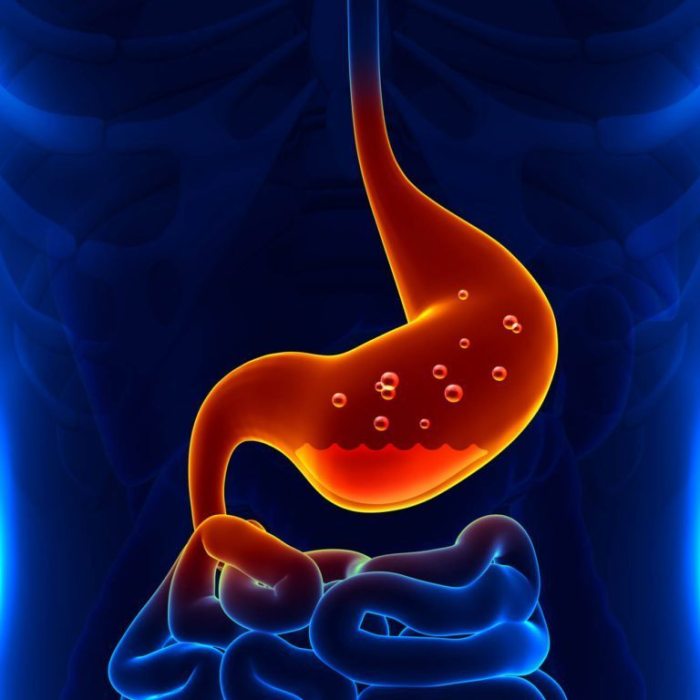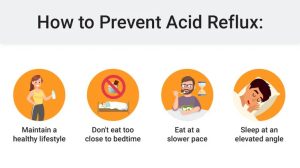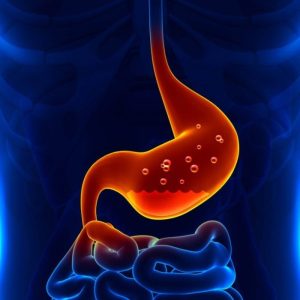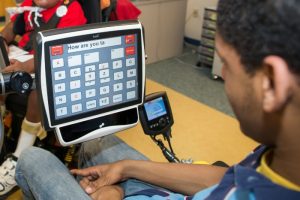
Are you tired of dealing with acid reflux? Let’s dive into the world of acid reflux surgery options, exploring the different types of procedures, pre-op preparations, and postoperative care to help you make an informed decision.
From understanding the risks and benefits to learning about alternative treatments, this comprehensive guide has got you covered. So, buckle up and get ready to say goodbye to acid reflux woes!
Overview of Acid Reflux Surgery Options
Acid reflux surgery is considered when lifestyle changes, medications, or other non-invasive treatments do not effectively manage the symptoms. There are several surgical options available for acid reflux, each with its own criteria, risks, and benefits.
Surgical Options for Acid Reflux
- Fundoplication: This procedure involves wrapping the top of the stomach around the lower esophagus to strengthen the muscle and prevent acid reflux.
- LINX Device: A small, flexible ring of magnets is placed around the esophagus to help close the lower esophageal sphincter and prevent reflux.
- Endoscopic Procedures: Techniques such as Stretta, TIF (transoral incisionless fundoplication), and EsophyX involve using an endoscope to tighten the LES and reduce reflux.
Criteria for Considering Surgery
- Severe Symptoms: Surgery may be considered for individuals with severe acid reflux symptoms that significantly impact their quality of life.
- Failure of Conservative Treatments: If lifestyle changes, medications, and other non-surgical treatments have not provided adequate relief, surgery may be an option.
- Complications: Patients with complications such as Barrett’s esophagus or esophageal strictures may benefit from surgical intervention.
Risks and Benefits
- Risks: Common risks associated with acid reflux surgery include infection, bleeding, and complications related to anesthesia. There is also a risk of developing difficulty swallowing or gas bloat syndrome post-surgery.
- Benefits: Acid reflux surgery can provide long-term relief from symptoms, reduce the need for medications, and prevent complications associated with chronic acid reflux, such as esophageal damage.
Types of Acid Reflux Surgery
Acid reflux surgery offers several options to effectively treat gastroesophageal reflux disease (GERD). Each type of surgery aims to address the underlying cause of acid reflux and provide long-term relief from symptoms.
Laparoscopic Fundoplication
- Laparoscopic fundoplication is a minimally invasive procedure where the upper part of the stomach is wrapped around the lower esophagus to strengthen the muscle.
- This surgery helps prevent stomach acid from flowing back into the esophagus, reducing symptoms of acid reflux.
- Success rates for laparoscopic fundoplication are high, with many patients experiencing long-term relief from GERD symptoms.
LINX Procedure
- The LINX procedure involves placing a small, flexible band of magnetic beads around the esophagus to help keep the lower esophageal sphincter closed.
- These magnetic beads open to allow food and liquid to pass through and then close to prevent stomach acid from refluxing into the esophagus.
- The LINX procedure is a less invasive option compared to traditional fundoplication surgeries and has shown promising results in treating GERD.
Endoscopic Techniques
- Endoscopic techniques involve using an endoscope to perform procedures that can help strengthen the lower esophageal sphincter or repair the esophagus lining.
- These procedures are typically less invasive than traditional surgeries and may be suitable for patients who prefer a non-surgical approach to treating acid reflux.
- Endoscopic techniques can provide relief from GERD symptoms, but long-term outcomes may vary depending on the individual case.
Preparing for Acid Reflux Surgery
Before undergoing acid reflux surgery, patients need to prepare both physically and mentally for the procedure. This preparation involves making important dietary and lifestyle changes, as well as undergoing necessary medical evaluations and tests to ensure a successful surgery and recovery process.
Dietary and Lifestyle Changes
- Avoid trigger foods: Patients should eliminate or reduce intake of foods that commonly trigger acid reflux symptoms, such as spicy foods, citrus fruits, and caffeine.
- Eat smaller meals: Consuming smaller, more frequent meals can help reduce the likelihood of acid reflux symptoms and improve digestion.
- Avoid lying down after eating: Patients should wait at least 2-3 hours after eating before lying down or going to bed to prevent acid reflux.
- Quit smoking and limit alcohol intake: Smoking and excessive alcohol consumption can exacerbate acid reflux symptoms, so patients should make efforts to quit smoking and reduce alcohol consumption.
Medical Evaluations and Tests
- Upper endoscopy: This procedure allows the doctor to examine the esophagus, stomach, and upper part of the small intestine using a thin, flexible tube with a camera.
- pH monitoring: This test measures the level of acidity in the esophagus over a 24-hour period to assess the severity of acid reflux.
- Motility testing: This test evaluates the movement and function of the esophagus to determine if there are any issues with the muscles that could contribute to acid reflux.
- Blood tests and imaging: Blood tests may be done to check for any underlying conditions, and imaging tests like X-rays or CT scans may be performed to assess the structure of the digestive system.
Recovery and Postoperative Care

After undergoing acid reflux surgery, it is crucial to follow proper recovery guidelines to ensure a smooth healing process and minimize complications. Here are some important aspects to consider during the recovery period:
Recovery Process
- Immediately after surgery, you will be monitored in a recovery room to ensure your vital signs are stable.
- Pain and discomfort are common after surgery, and your healthcare provider may prescribe pain medication to manage these symptoms.
- You will be advised to gradually resume normal activities, starting with light walking, and avoiding strenuous activities for a few weeks.
Managing Discomfort and Promoting Healing
- Follow your healthcare provider’s instructions for wound care to prevent infection and promote healing.
- Eat small, frequent meals to avoid putting too much pressure on the surgical site and aid digestion.
- Avoid lifting heavy objects or engaging in activities that strain your abdominal muscles to prevent complications.
Diet and Activity Restrictions
- Stick to a soft diet initially, gradually progressing to solid foods as tolerated.
- Avoid spicy, acidic, or fatty foods that can trigger acid reflux symptoms and irritate the surgical site.
- Avoid alcohol and caffeine, as they can worsen acid reflux and delay healing.
- Refrain from smoking, as it can impair healing and increase the risk of complications.
- Consult your healthcare provider before resuming exercise or heavy lifting to ensure it is safe for you to do so.
Alternative Treatments to Acid Reflux Surgery
Before considering acid reflux surgery, there are alternative treatments that can help manage the condition. These options include lifestyle modifications, dietary changes, and medications.
Lifestyle Modifications
- Avoiding trigger foods such as spicy, fatty, or acidic foods.
- Eating smaller meals and avoiding lying down right after eating.
- Elevating the head of the bed while sleeping to reduce nighttime reflux.
Dietary Changes
- Increasing fiber intake with fruits, vegetables, and whole grains.
- Avoiding caffeine, alcohol, and carbonated beverages.
- Limiting intake of chocolate, mint, and citrus fruits.
Medications
- Over-the-counter antacids to neutralize stomach acid.
- H2 blockers to reduce acid production in the stomach.
- Proton pump inhibitors to block acid production and allow esophagus to heal.
While alternative treatments can be effective in managing acid reflux, they may not provide long-term relief for all individuals. It is important to work with a healthcare provider to determine the best approach for your specific condition.
Health Diseases
Acid reflux, if left untreated, can lead to various health complications that can significantly impact an individual’s quality of life. It is essential to manage acid reflux effectively to prevent these associated health diseases.
Complications of Acid Reflux
- Esophagitis: Chronic exposure of the esophagus to stomach acid can cause inflammation, leading to a condition called esophagitis. Symptoms may include difficulty swallowing, chest pain, and heartburn.
- Barrett’s Esophagus: In some cases, long-standing acid reflux can damage the lining of the esophagus, increasing the risk of developing Barrett’s esophagus. This condition is a precancerous change in the cells of the esophagus and requires close monitoring.
Link to Other Health Conditions
- Asthma: Studies have shown a correlation between acid reflux and asthma. Acid reflux can trigger asthma symptoms and worsen the condition, leading to increased respiratory issues.
- Chronic Cough: Acid reflux can irritate the nerves in the esophagus and throat, leading to a persistent cough. This chronic cough can significantly impact an individual’s daily life and may require medical intervention.
Importance of Managing Acid Reflux
- Preventing Complications: By effectively managing acid reflux through lifestyle changes, medication, or surgical options, individuals can reduce the risk of developing serious health diseases such as esophagitis, Barrett’s esophagus, asthma, or chronic cough.
- Improving Quality of Life: Managing acid reflux can alleviate symptoms such as heartburn, regurgitation, chest pain, and difficulty swallowing, improving overall quality of life and well-being.
Health Allergies
Food allergies can play a significant role in triggering acid reflux symptoms. Managing allergies effectively can help alleviate acid reflux and improve overall digestive health. Here are some tips on identifying and addressing allergies that contribute to acid reflux.
Connection Between Food Allergies and Acid Reflux
Food allergies, especially to common triggers like dairy, gluten, or certain fruits and vegetables, can lead to inflammation in the digestive tract. This inflammation can exacerbate acid reflux symptoms and make the condition more difficult to manage. Identifying specific food allergies through testing or elimination diets can help individuals pinpoint triggers and make necessary dietary changes to reduce acid reflux symptoms.
Managing Allergies to Alleviate Acid Reflux
- Keep a food diary to track symptoms and potential triggers
- Work with a healthcare provider to determine the best allergy testing options
- Follow an elimination diet to identify and eliminate specific allergens from your diet
- Consider integrating anti-inflammatory foods to help reduce inflammation in the digestive tract
Identifying and Addressing Allergies that Contribute to Acid Reflux
- Consult with an allergist for comprehensive allergy testing
- Implement lifestyle changes to reduce exposure to allergens
- Consider allergy shots or other immunotherapy options for severe allergies
- Work closely with a healthcare team to develop a personalized treatment plan
Health Massage
Massage therapy can play a beneficial role in managing symptoms of acid reflux by promoting relaxation, reducing stress, and improving overall well-being. Incorporating massage into a holistic treatment plan for acid reflux can complement medical interventions and lifestyle modifications to help alleviate discomfort and improve quality of life.
Specific Massage Techniques
- Swedish Massage: This gentle form of massage utilizes long, flowing strokes to promote relaxation and relieve muscle tension, which can help reduce stress and anxiety associated with acid reflux.
- Abdominal Massage: Targeted massage techniques on the abdomen can help improve digestion, reduce bloating, and alleviate discomfort caused by acid reflux symptoms.
- Trigger Point Therapy: By applying pressure on specific points in the body, trigger point therapy can help release tension and promote pain relief, which may benefit individuals experiencing acid reflux symptoms.
Benefits of Massage for Acid Reflux
- Relaxation: Massage therapy can induce a state of relaxation, reducing stress levels and promoting overall well-being, which can help manage acid reflux symptoms triggered by stress.
- Improved Digestion: Certain massage techniques can stimulate digestion, reduce bloating, and alleviate discomfort in the gastrointestinal tract, providing relief from acid reflux symptoms.
- Pain Relief: By targeting muscle tension and trigger points, massage therapy can help alleviate pain and discomfort associated with acid reflux, improving quality of life for individuals with this condition.
Health Disability
Chronic acid reflux, if left untreated or unmanaged, can significantly impact an individual’s daily activities and overall quality of life. The persistent symptoms of acid reflux, such as heartburn, chest pain, difficulty swallowing, and regurgitation of acid, can lead to disabilities that affect a person’s physical, emotional, and social well-being.
Impact on Daily Activities and Quality of Life
- Difficulty in eating and drinking due to pain and discomfort.
- Disrupted sleep patterns caused by nighttime reflux symptoms.
- Decreased productivity at work or school due to fatigue and concentration issues.
- Limited physical activities and exercise routines because of chest pain or shortness of breath.
Potential Disability Implications
- Development of esophageal strictures or ulcers, leading to difficulty swallowing and chronic pain.
- Increased risk of respiratory issues like asthma or pneumonia due to aspiration of stomach contents.
- Chronic inflammation of the esophagus, which can progress to a condition known as Barrett’s esophagus, a precursor to esophageal cancer.
- Impact on mental health, including anxiety, depression, and social withdrawal due to the constant discomfort and pain associated with acid reflux.
Managing Acid Reflux-Related Disabilities and Seeking Support
- Consult with a gastroenterologist or a healthcare provider to discuss treatment options and lifestyle modifications to manage acid reflux symptoms effectively.
- Follow a tailored treatment plan that may include medications, dietary changes, weight management, and stress reduction techniques.
- Participate in support groups or seek counseling to cope with the emotional and psychological challenges of living with chronic acid reflux.
- Work with healthcare professionals to address any disability accommodations needed at work or in daily activities to improve quality of life.
Heartburn and Acid Reflux

Heartburn and acid reflux are often used interchangeably, but they are actually different conditions. Acid reflux is the backward flow of stomach acid into the esophagus, causing irritation and inflammation. On the other hand, heartburn is a symptom of acid reflux, characterized by a burning sensation in the chest.
Differentiate between Heartburn and Acid Reflux
- Heartburn is a symptom of acid reflux, while acid reflux refers to the actual condition of stomach acid moving into the esophagus.
- Heartburn typically manifests as a burning sensation in the chest, often after eating or when lying down.
- Acid reflux can lead to heartburn, but not all cases of acid reflux result in heartburn.
Managing Heartburn and Acid Reflux
- Avoid trigger foods such as spicy, fatty, or acidic foods that can worsen acid reflux symptoms.
- Eat smaller, more frequent meals to prevent overeating and reduce pressure on the stomach.
- Try to maintain a healthy weight, as excess weight can put additional pressure on the abdomen and worsen acid reflux symptoms.
- Elevate the head of your bed to help prevent stomach acid from refluxing into the esophagus while sleeping.
- Consider over-the-counter antacids or prescription medications to help control acid reflux symptoms.
Conclusion
In conclusion, navigating the realm of acid reflux surgery options can be overwhelming, but armed with the right knowledge, you can make the best choice for your health. Whether you opt for surgery or explore alternative treatments, remember that managing acid reflux is key to a healthier, happier you.
Answers to Common Questions
What are the criteria for considering surgery as a treatment option?
Criteria for surgery include severe symptoms that don’t respond to medications, complications like esophagitis, or the development of Barrett’s esophagus.
What are the success rates of laparoscopic fundoplication compared to other techniques?
Laparoscopic fundoplication has high success rates in resolving acid reflux symptoms, with long-term outcomes comparable to other surgical methods.
Can lifestyle modifications alone effectively manage acid reflux without surgery?
For some individuals, making dietary changes, elevating the head during sleep, and avoiding trigger foods can successfully control acid reflux symptoms without the need for surgery.
How can massage therapy help alleviate discomfort associated with acid reflux?
Massage therapy can aid in relaxing muscles, reducing stress, and improving overall well-being, which may indirectly alleviate symptoms of acid reflux.
Is heartburn always a symptom of acid reflux?
While heartburn is a common symptom of acid reflux, not everyone with acid reflux experiences heartburn. Other symptoms can include regurgitation, chest pain, or difficulty swallowing.





